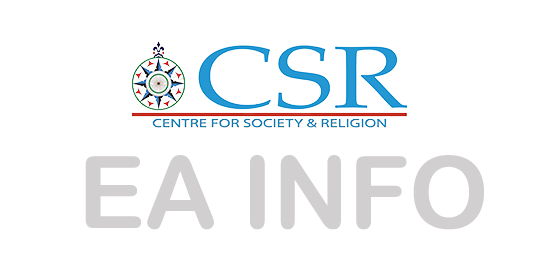Authorities in Sri Lanka should end arbitrary arrests and other abuses against Muslims and appropriately protect the community from violence, Human Rights Watch said today.
Since the Easter Sunday bombings in April 2019 that killed over 250 people, which was claimed by Islamist militants, Sri Lankan Muslims have faced an upsurge in violations of their basic rights and assaults and other abuses from Buddhist nationalists. Sri Lankan officials and politicians should stop endorsing, ignoring, or exploiting hate speech and mob violence directed at Muslims by members of the Buddhist clergy and other powerful figures.
“The Sri Lankan government has a duty to protect its citizens and prosecute those responsible for the terrible Easter Sunday bombings, but it shouldn’t be punishing the Muslim community for this crime,” said Meenakshi Ganguly, South Asia director at Human Rights Watch. “It’s crucial for the authorities to act swiftly to stop mob violence, threats, and discrimination against Muslims.”
In June 2019, Human Rights Watch interviewed Muslim victims of abuses, activists, lawyers, and officials to document abuses against Muslims, often with state complicity.
Since the bombings, the authorities have arbitrarily arrested and detained hundreds of people under counterterrorism and emergency laws. According to lawyers and activists, the vast majority of arrests are under the Prevention of Terrorism Act (PTA), a long-abused law that the government pledged to the United Nations Human Rights Council to repeal. Lawyers said their clients had often been arrested without any credible evidence of terrorist involvement, for reasons including having the Quran or other Arabic literature in their possession during searches.
The governmental Human Rights Commission of Sri Lanka found in May that the government failed to protect Muslims during communal rioting. Police have repeatedly failed to act properly or prosecute perpetrators. For instance, the manager of a Muslim-owned business who was attacked said the police did not make any arrests “despite plenty of CCTV footage to identify the perpetrators.”
Officials have made little effort to discourage public campaigns by religious figures that put the Muslim community at greater risk. On May 15, Gnanarathana Thero, one of Sri Lanka’s most senior Buddhist monks, called for the stoning to death of Muslims, and propagated an unfounded allegation that Muslim-owned restaurants put “sterilization medicine” in their food to suppress the majority Sinhalese Buddhist birthrate.
Government leaders, instead of fulfilling their duty to protect Muslim citizens, have at times appeared to associate themselves with Buddhist nationalist elements. Many stood by when nine Muslim cabinet and junior ministers felt compelled to resign after the opposition accused them of supporting Islamist militants. On May 23, President Maithripala Sirisena pardoned Gnanasara Thero, the leader of the nationalist Bodu Bala Sena (BBS) who has long been associated with instigating deadly anti-Muslim violence, freeing him after he had served less than a year of a six-year prison term for contempt of court.
Sirisena also ordered a ban on face coverings in public as one of a number of emergency measures imposed following the Easter Sunday bombings, which has led to the targeting of Muslim women even for using headscarves. One activist, explaining that Muslim women face constant harassment, including in government buildings and public spaces, said: “It is very difficult for them to bear. Their dignity is challenged continually.”
The criminal law has also been invoked to arrest peaceful critics of Sri Lankan Buddhism in violation of their rights to free expression.
The situation has caused mounting international alarm for the safety of Muslims and other minorities. In her opening statement at the UN Human Rights Council on June 24, UN High Commissioner for Human Rights Michelle Bachelet said she was “disturbed by reports of anti-Muslim attacks” in Sri Lanka, including “recent statements by some religious leaders inciting violence [that] constitute worrying early warning indicators that should be addressed.”
European embassies in Colombo issued a joint statement in June that actions against Muslims are “undermining peace and reconciliation in the country. Prejudiced and unsubstantiated allegations repeatedly published by media serve only to fuel intolerance.”
A day after the resignation of Muslim cabinet ministers, the Organisation of Islamic Cooperation said: “The lives and livelihoods of Muslims, including their local stores and large business establishments, are threatened by the prevailing conditions with unforeseen, dangerous consequences.”
The Sri Lankan government should ensure the prompt and impartial enforcement of the law to protect the fundamental rights of all Sri Lankans. Crucial for ending abuses over the long term is for the government to implement its pledges to the Human Rights Council to ensure human rights reforms, transitional justice, accountability, and reconciliation, Human Rights Watch said.
“The ethnic violence and human rights violations that many Sri Lankans have suffered are now being directed against Muslims,” Ganguly said. “The Sri Lankan government needs to take a stand against discrimination and intolerance, use the law to punish those responsible for abuses and protect, rather than target, vulnerable people.”
Source- Human Rights Watch


